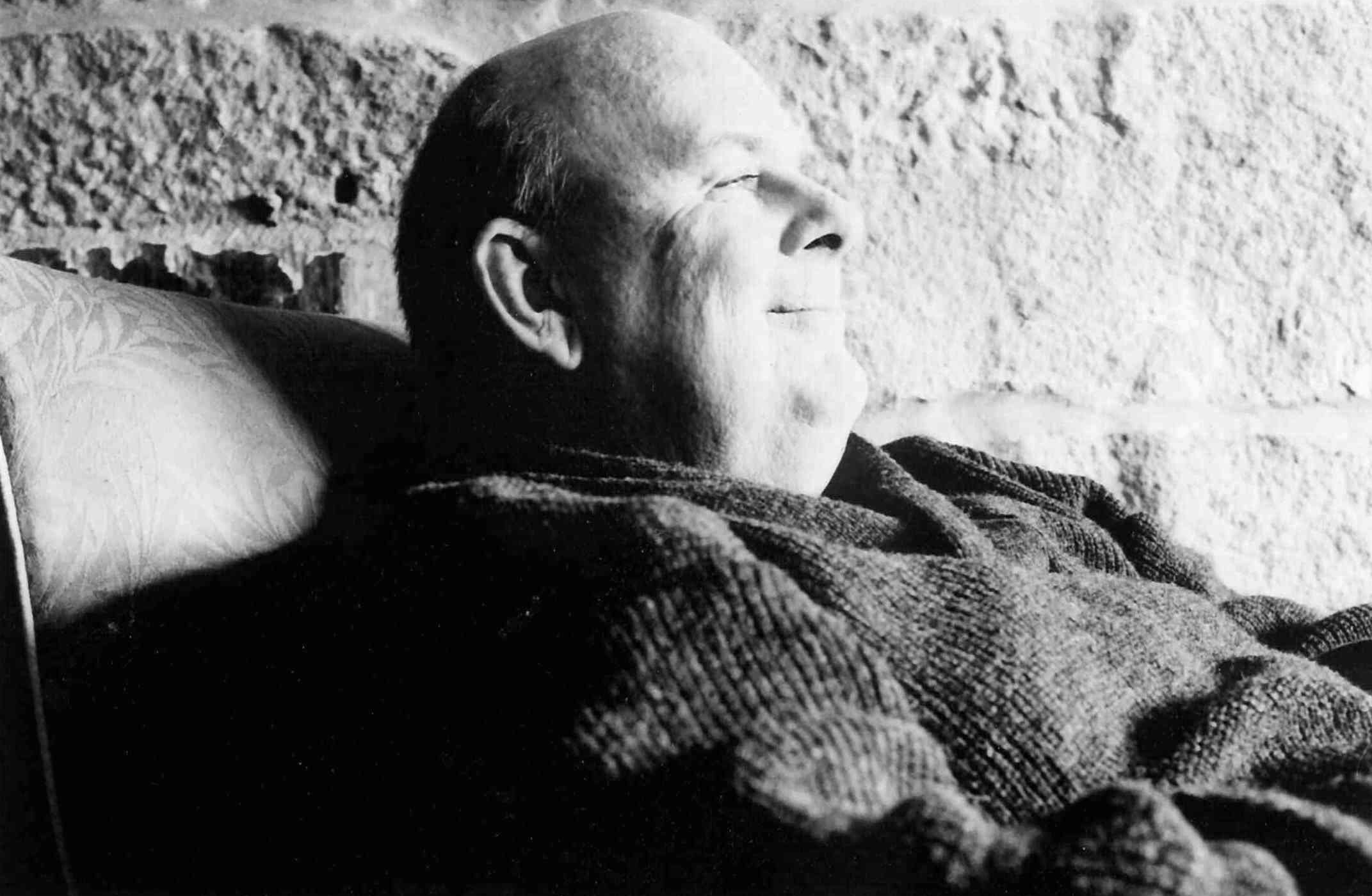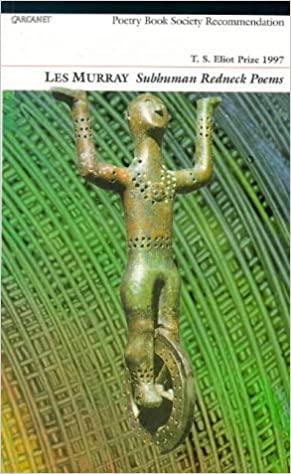In 2023 the T. S. Eliot Prize celebrates its 30th anniversary. We’re marking the occasion by looking back at the collections which have won ‘the Prize poets most want to win’ (Sir Andrew Motion).

Les Murray won the T. S. Eliot Prize 1996 with Subhuman Redneck Poems (Carcanet), judged by Andrew Motion (Chair), Helen Dunmore and Ruth Padel.
Sadly, Les Murray died on 29 April 2019, aged 80, so we asked Michael Schmidt, Les Murray’s publisher at Carcanet, to reflect on Les’s win.
Michael wrote:
Subhuman Redneck Poems was a title I baulked at when Les Murray sent me the script of his book. It still seems to me to overplay one suit when he holds the whole pack of cards in his hand. He was a common man, a redneck, but at the same time an uncommon one in his learning, his grace, his sheer variety of interest, experience and feeling. Subhuman Redneck Poems was written with his left hand while his right was busy composing the verse novel Fredy Neptune. It proved that his amazing lyric gift could not be staunched even by that vast narrative, not to say epic, endeavour.
Derek Walcott declared, ‘There is no poetry in the English language so rooted in its sacredness, so broad-leafed in its pleasures, and yet so intimate and conversational.’ That is true. His books were dedicated to the glory of God because the incarnation sanctified the whole material world to which God-made-man committed himself. Our world. Us. The humble folk of the holy land and the humble folk of the outback broke and shared the same bread. To glorify God, his natural and human world deserve enactment and witness, and this extraordinary book enacts and witnesses.
Les writes an elegy for his father that is tender, harrowing, candid, forgiving. Here Murray sees and feels, in the changes in his country and its people and the changes in the larger world, the changes in himself and his family, how time passing deepens the imagination. Poetry is a way of witnessing at once to continuities and to alterations, a way of preserving, accepting, warning. And praying. A quite amazing book. It is one of those choices which one feels might have appealed to T. S. Eliot himself. I’m sorry, Tom: Les is a Carcanet poet.
 Les Murray (1938-2019) grew up on a dairy farm at Bunyah on the north coast of New South Wales. He studied at Sydney University and later worked as a translator at the Australian National University and as an officer in the Prime Minister’s Department. Carcanet publish his Collected Poems and his New Selected Poems (2012), as well as his individual collections, including Subhuman Redneck Poems (1996), The Biplane Houses (2006), and his essays and prose writings in The Paperbark Tree (1992). His last collection, Continuous Creation: Last Poems, was published in 2022. Murray’s verse novel Fredy Neptune appeared in 1998 and in 2004 won the Mondello Prize in Italy and a major German award at the Leipzig Book Fair. He also edited The Quadrant Book of Poetry 2001-2010. In 1999 Murray was awarded The Queen’s Gold Medal for Poetry.
Les Murray (1938-2019) grew up on a dairy farm at Bunyah on the north coast of New South Wales. He studied at Sydney University and later worked as a translator at the Australian National University and as an officer in the Prime Minister’s Department. Carcanet publish his Collected Poems and his New Selected Poems (2012), as well as his individual collections, including Subhuman Redneck Poems (1996), The Biplane Houses (2006), and his essays and prose writings in The Paperbark Tree (1992). His last collection, Continuous Creation: Last Poems, was published in 2022. Murray’s verse novel Fredy Neptune appeared in 1998 and in 2004 won the Mondello Prize in Italy and a major German award at the Leipzig Book Fair. He also edited The Quadrant Book of Poetry 2001-2010. In 1999 Murray was awarded The Queen’s Gold Medal for Poetry.
ABOUT THE T. S. ELIOT PRIZE
The T. S. Eliot Prize celebrates its 30th anniversary in 2023. Awarded annually to the best new poetry collection published in the UK and Ireland, the Prize was founded by the Poetry Book Society in 1993 to celebrate the PBS’s 40th birthday and to honour its founding poet. It has been run by The T. S. Eliot Foundation since 2016. For more on the history of the Prize, visit tseliot.com/prize
The judges of the T. S. Eliot Prize 2023 are Paul Muldoon (Chair), Sasha Dugdale and Denise Saul. Submissions are now open and will close at the end of July. The 2023 Shortlist Readings will be held on 14 January 2024 at the Southbank Centre’s Royal Festival Hall; tickets will go on sale later this year. The winner of the 2023 Prize will be announced at the Award Ceremony on 15 January 2024.
Sign up to the T. S. Eliot Prize e-newsletter for regular updates about the award. It includes poems and specially commissioned video readings by our shortlisted poets, plus interviews, biographical information, reviews, Readers’ Notes, and news and offers from across the poetry world.


